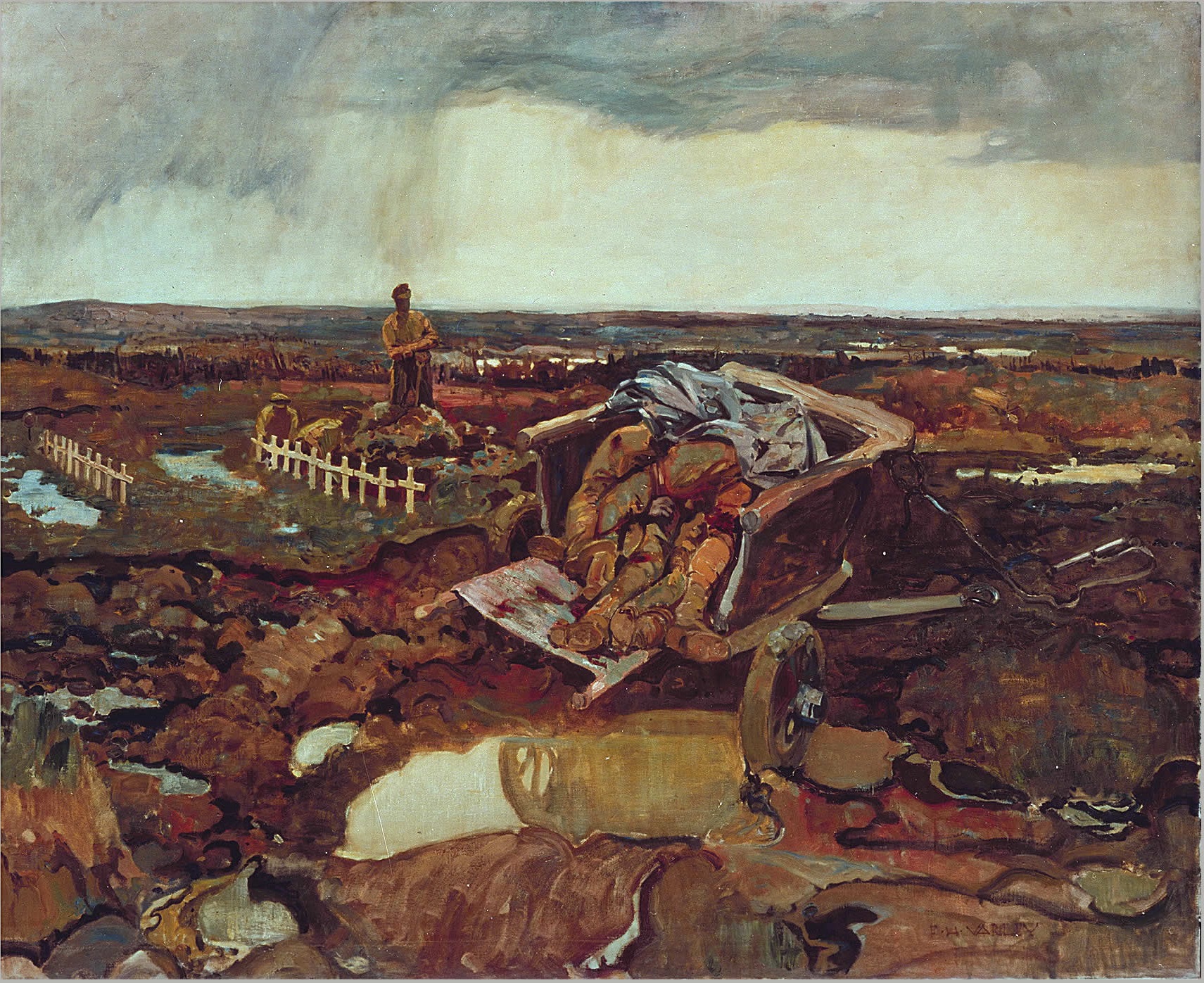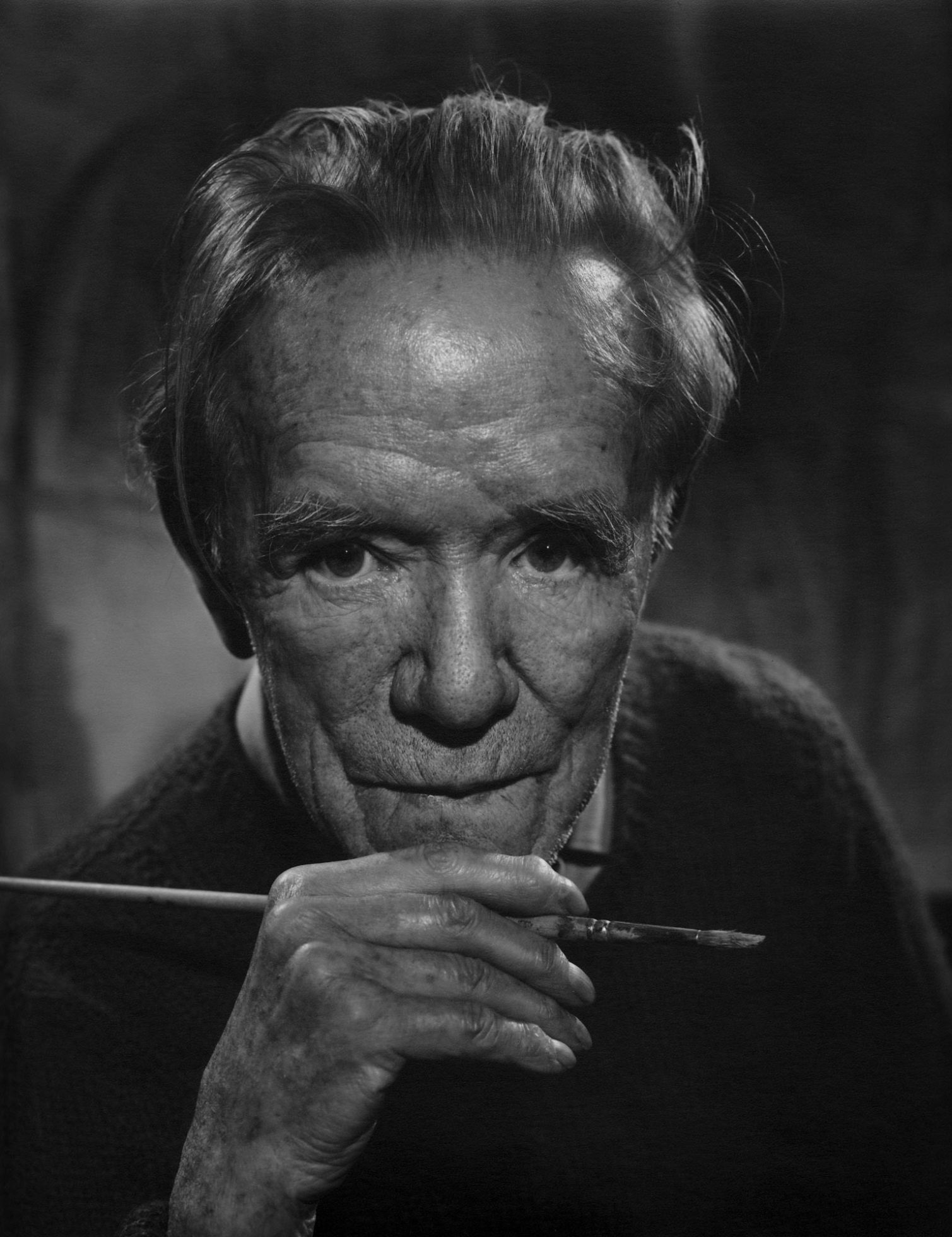Today is the anniversary of the end of World War I, during which more than 70 million military personnel, including 60 million Europeans, were mobilised. Over nine million combatants and seven million civilians died as a result of the war (including the victims of a number of genocides), a casualty rate exacerbated by the belligerents' technological and industrial sophistication, and the tactical stalemate caused by gruelling trench warfare. It was one of the deadliest conflicts in history, and paved the way for major political changes, including revolutions in many of the nations involved.
Today, we would like to present a painting created by the Canadian artist (yes, I promise we will feature Canadians more often!:) Frederick Horsman Varley. The story was written by our new contributor, Norman.
Frederick Horsman Varley was born in Sheffield, England in 1881. He studied in Sheffield and Antwerp and immigrated to Canada in 1912. In 1918, he was commissioned as an official war artist by the Canadian government. Varley quickly became disillusioned with the appalling carnage of WW1. In 1920 he became a founding member of the Group of Seven, whose members depicted the wilderness of Canada.
For What? hangs in the Canadian War Museum, Ottawa. Under a leaden sky that, on the left, can hardly support itself sits a newly delivered cart loaded with the bodies of freshly killed soldiers to be buried in the small cemetery. In the foreground, the earth itself has been mutilated by shelling and is littered with the debris of war. One of the grave diggers is leaning on his shovel, weary from the never-ending work. A greyish ray of light illuminates the diggers, possibly portending hope for the future.
- Norman Clark


 Frederick Horsman Varley
Frederick Horsman Varley